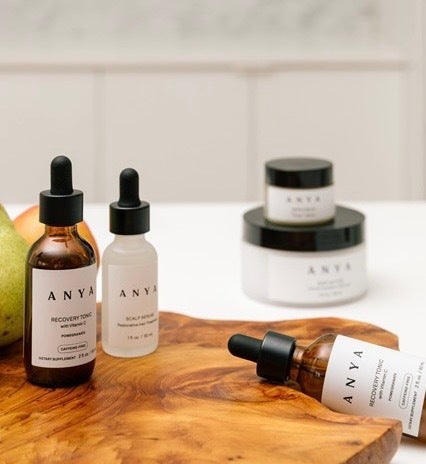A postpartum doula’s job starts as soon as you come home from the hospital (unlike a birth doula, whose job is to be with you during the birth). Often the same professional is trained or certified to serve both roles, but while a birth doula focuses on the mother, a postpartum doula focuses on the mother and the baby (and is not to be confused with a baby nurse, who focuses on the baby).
A postpartum doula’s job is more art than science—and what they do varies widely depending on the doula. Generally speaking, you can expect a postpartum doula to prepare meals; help with breastfeeding and pumping; do the baby’s laundry (or yours); teach you how to swaddle, soothe, and hold the baby; help establish a feeding and sleeping schedule; and take care of the baby while you rest. Though most are not medically trained, a postpartum doula can also offer support while you recover, be it from a C-section, hemorrhoids, engorged breasts, or any other postpartum issues.
The relationship you have with your doula is personal and intimate, so it’s especially important that you find someone you like and trust to make your postpartum life easier.
Do I need one?
If you don’t have a full understanding of what the postpartum period looks like, you might want a postpartum doula for at least a short period of time to ease the transition into parenthood. If you have relatives who live nearby and are eager to help with the new baby—or you just want to do it on your own with your partner—you may not need a doula.
Where do I find one?
Start by asking your obstetrician and mom friends for recommendations. There are several doula certification programs with online databases that can help you locate a doula in your area: CAPPA, DONA International, and the International Childbirth Education Association (ICEA).
When do I hire one?
If you expect to use a postpartum doula, begin the search while you are pregnant—your doula will have helpful advice on how to transition home from the hospital. It also helps to know that someone will meet you at home as soon as you and your newborn arrive. If you decide to hire a doula after you give birth, that works, too. There are no hard and fast deadlines.
Because the relationship between an expectant mother and a doula is so personal, be sure to interview candidates thoroughly and ask every possible question you may have.
If you can’t think of any, here’s a place to start:
- What’s the biggest problem you see new moms having?
- How long have you been a postpartum doula?
- What would a typical day be like if we worked together?
- Are you certified in lactation support?
- Will you teach me how to pump?
- Are there any supplies I need to get or do you handle all of that?
- Do you run errands or do light housework?
- Do you do laundry? Mine or just the baby’s?
- Do you cook? What meals do you prepare?
- Can you help me get the baby on a feeding and napping schedule?
- Will you teach me how to sleep-train?
- How long do you typically work with clients?
- Do you offer packaged hours?
Keep in mind that the doula you are interviewing may also have questions for you, including:
- What are you hoping to get out of having a postpartum doula?
- Do you have family helping out?
- What kind of birth are you hoping to have? (This will help the doula prepare for your recovery.)
- How are you hoping to feed your baby?
What’s a typical visit like?
There is no one standard approach; each visit will vary based on the doula, the mother, the baby, and the day. A postpartum doula’s job is to help you adapt to parenthood, and what that entails varies greatly depending on your recovery.
Christine Kealy, the director of In a Family Way, a postpartum doula service in New York, describes the scope of her work as a doula:
“I liked to provide healthy food for the new family, so I would bring a healthy loaf of bread with some cheese and slices of turkey to make snacks. I would also make a big jug full of cold lactation tea to help with mom’s milk supply. Then I would give the mother a notebook to jot down things she needed as she thought of them. This is all on day one."
“If the mother was breastfeeding, I would check her positioning and urge her to put the baby to the breast every two to three hours to stimulate the milk to come in. I would comfort her by letting her know she would be able to go longer in between feedings once the baby regained its birth weight. I would show her how to do a nice tight swaddle, so the baby wouldn’t wake up by flailing its little hands on its face."
“‘Sleep when the baby sleeps’ is my mantra, so as soon as the feeding ended, I’d take the baby so that mom could hopefully get a few hours of sleep. I would tidy up, empty and reload the dishwasher, throw out dying flowers, sweep the kitchen floor."
“I also would take careful messages of the well-wishers calling in. But I always stressed to the parents that no one needed to be called back, no thank-yous needed to be written yet. And if they want visitors, it is best to have them come together for a viewing because the mother needs rest and quiet to recover from the difficult task of birthing a baby. Plus, she and her partner need time to adjust to their new roles without feeling they have to entertain relatives and friends."
“While I’d do the baby’s laundry—and sometimes the family laundry—I would usually talk to the mom, and we’d discuss other issues she might be having. I also urged them to call with any problems day or night so I could talk them through it or advise them when they needed to call the doctor.”
A postpartum doula will also monitor how a new mother is holding up emotionally.
“I always ask about sleep patterns because I’ve found that most early postpartum depression or postpartum anxiety shows up with sleep disturbances,” says Sarah Moore, a certified lactation counselor and DONA-certified doula in New York. “I also observe behavior: Is she crying while we are talking? Is she holding the baby? Kissing the baby? If there is a partner, I try to get a sense from them about how she is doing—often it takes a second set of eyes.”
How much does it cost?
A postpartum doula typically charges by the hour, and prices can range from $25 to $70; each visit can be as long as four hours. Some postpartum doulas are also night doulas, and having one stay overnight can run anywhere from $250 to $500. Typically, a postpartum doula stays for a few weeks, until you get the hang of everything, but new mothers may also grow attached to their doulas. (Kealy has worked with some families for months, even years, and in one case, until the baby was a toddler.) Insurance may or may not cover doula costs, so be sure to ask your provider ahead of time.






